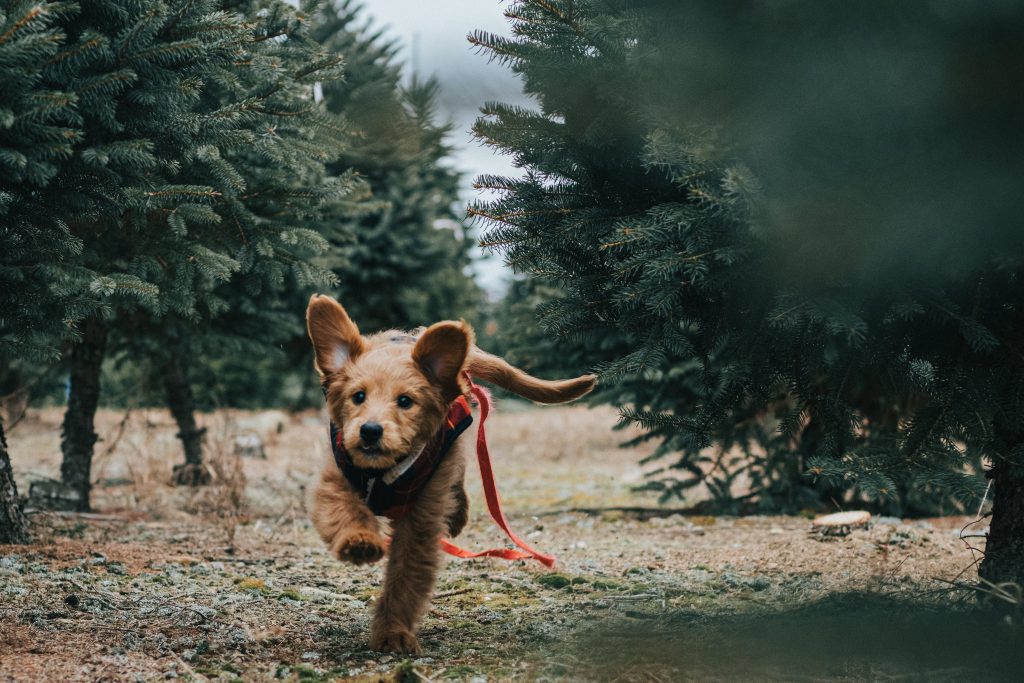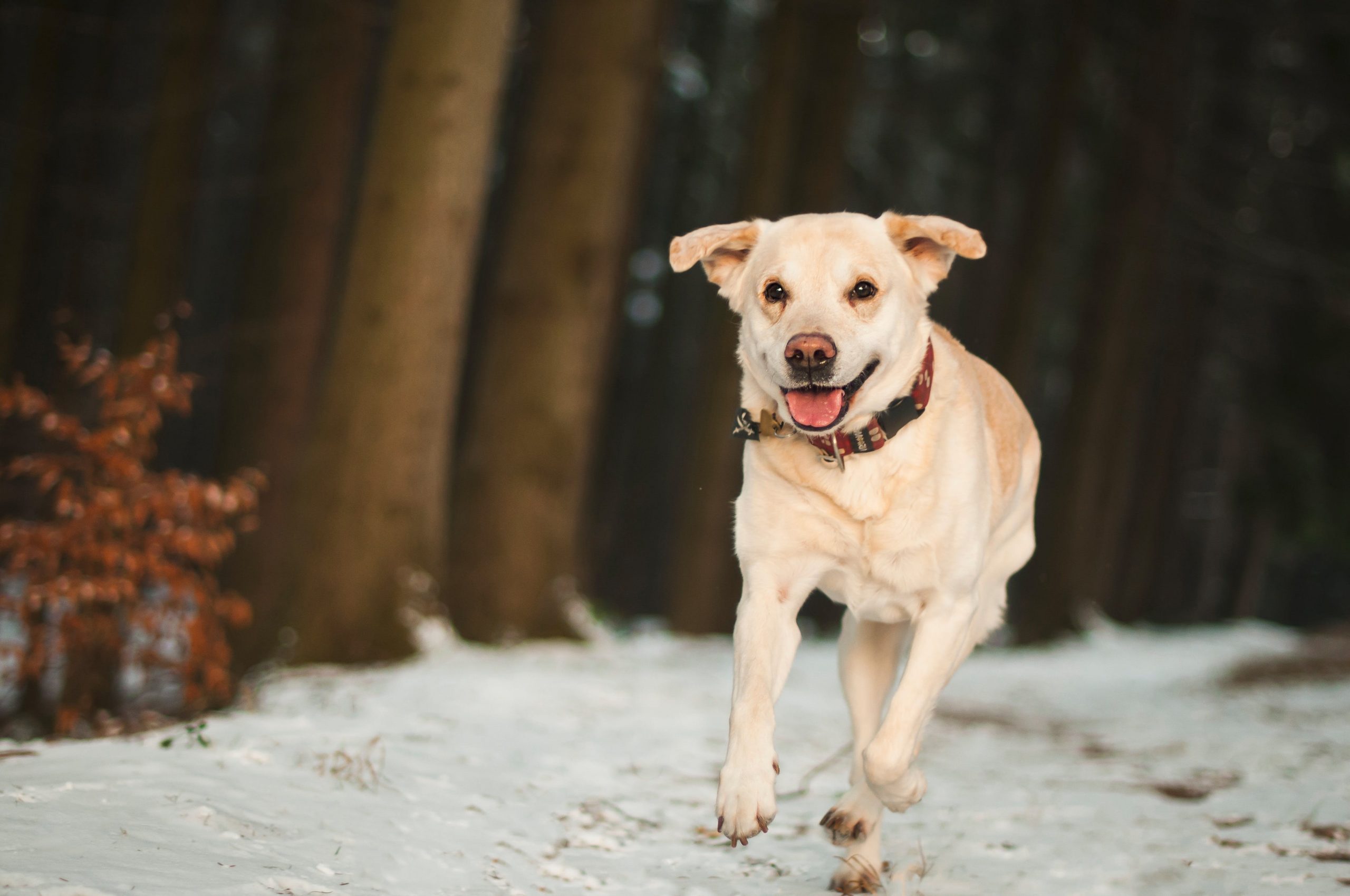Wondering, “Why do dogs run away?” Various factors contribute to this prevalent worry among pet owners. While your dog may adore you, certain triggers or circumstances might entice them to explore beyond the confines of your home. Let’s delve into the reasons behind this behaviour and explore effective ways to prevent it.
Several factors may contribute to your dog’s inclination to run away. Dogs are naturally curious animals, and their instinctual desire to explore their surroundings can lead them to wander off. Additionally, boredom, lack of exercise, or insufficient mental stimulation may drive dogs to seek excitement beyond their immediate environment. Ensuring your dog receives proper training, regular exercise, and mental stimulation can help address this behaviour and strengthen the bond between you and your furry friend.
Moreover, some dogs may escape due to fear or anxiety, especially in response to loud noises, unfamiliar situations, or the presence of other animals. It’s essential to identify and address any underlying triggers that might be causing stress for your dog. Providing a secure and enriched environment, using positive reinforcement in training, and considering professional guidance if needed can contribute to minimizing the chances of your dog running away. Understanding your dog’s individual needs and behaviors will go a long way in fostering a safe and fulfilling relationship.
Common Reasons Why do Dogs Run Away
Frustration and Boredom:
Dogs may seek an escape route if they feel bored or frustrated. Long periods of solitude, because she’s bored, afraid, or stressed because you’re gone, lack of toys, or limited playtime can contribute to their restlessness. boredom, fear, anxiety, territorial behavior are all reasons for escape. Providing mental stimulation through toys and regular exercise can curb this tendency.
Separation Anxiety:
Seperation anxiety is one of the main reasons which answers “why do Dogs run away?”, especially when left alone. Destructive behavior, nervousness during your departure, or house accidents might indicate this condition. Strategies like special treats, gradual conditioning, or seeking professional advice can help manage separation anxiety.
Fearful Triggers:
Loud noises like Thunder, gunfire, and car accidents or fireworks can induce fear in dogs, prompting them to flee. Creating a safe space indoors, using background noise, and gradual exposure to triggering sounds can alleviate their anxiety.
Sexual Drive:
Unfixed dogs may escape in search of a mate, driven by their heightened sexual instincts. Addressing this issue involves considering spaying or neutering your dog, a crucial step in preventing such escapades.

Easy Dog Escape Routes
Dogs, by nature, are curious explorers. Veterinarian Sharon Crowell-Davis emphasizes that dogs are inherently active and inclined to discover their surroundings. Insufficient fencing, broken gates, or open windows create opportunities for dogs to venture out. To mitigate this risk, ensure secure pet-proof screens for open windows and use baby gates or door barriers to prevent your dog from darting through open doors. Regular yard supervision and fence checks are essential to maintain a secure environment.
On the Chase
Dogs with a strong prey drive, like Radar, may impulsively chase after squirrels or other animals. Effective leash control tools, such as a double collar and harness, are crucial for preventing such pursuits. Owners should stay vigilant, recognizing that a prey drive is instinctual, and practicing recall commands can help in managing and redirecting this behavior. Explore our walking guide for additional leash control insights.
Nature Calls
The reproductive drive, particularly in intact male dogs, can drive them to roam in search of a mate. Even well-trained dogs may succumb to natural urges if an unspayed female is in the vicinity. Supervision and secure fencing are preventive measures, but the most effective solution is timely spaying or neutering. Studies show a significant reduction in roaming behavior after the procedure. While the timeline for spaying or neutering is flexible, it is generally recommended to be done around eight weeks or older.
Scary Sights and Sounds
Fireworks, among other frightening stimuli, can induce fear in dogs. Loud noises, bright lights, and crowded events can distress even the most content dogs. While celebrations are essential, prioritize your dog’s safety by keeping them securely indoors during festivities. This precaution ensures a calm and stress-free environment for your canine companion amidst potentially anxiety-inducing situations.
Preventing Dog Runaways: Practical Tips
To tackle frustration and boredom:
- Engage in daily play or walks.
- Provide stimulating toys, including puzzles.
- Keep an eye on your dog indoors.
- Utilize doggy day care or enlist a friend’s help for longer absences.
- Teach commands, tricks, and interactive games.
For separation anxiety:
- Offer special treats during departures.
- Gradually condition your dog to your leaving routine.
- Seek professional guidance for severe cases.
Addressing fearful triggers:
- Create a secure indoor environment during triggering events.
- Provide a safe retreat and background noise.
- Consult a vet or trainer for desensitization techniques.
Managing sexual instincts:
- Spay or neuter your dog promptly.
Tips to Ensure Your Dog’s Safety
- Ensure they are microchipped and wear an ID collar with your contact information.
- Monitor gates and doors during visits from outsiders, Make it harder to escape.
- Secure your dog during guest arrivals.
- Train a reliable “stay” command.
- Keep your dog leashed during walks.
- Avoid chasing a runaway; instead, sit and call them back.
- Reward their return positively; avoid punishment to maintain a positive association.
By understanding the reasons why do dogs run away and implementing preventive measures, you can create a safer and happier environment for your beloved canine companion.
FAQ: Why do dogs run away answered
Q1. why does my dog run away when off-leash
Dogs are naturally curious and may be enticed by interesting scents, sights, or sounds in their surroundings. Additionally, a lack of proper training or insufficient recall commands might contribute to their desire to explore freely. Fear or anxiety, triggered by unfamiliar environments or other animals, could also be a factor. Understanding your dog’s behavior, investing in consistent training, and gradually introducing them to off-leash situations can help address and minimize the tendency to run away.
Q2. why do dogs run away when you open the door
Dogs running away when you open the door is often linked to their natural curiosity and excitement. The prospect of exploring the world beyond the door, discovering new scents, or encountering potential playmates can be irresistibly appealing to them. Additionally, some dogs may associate the open door with opportunities for adventure, leading them to dash out in pursuit of stimulation. To curb this behavior, consistent training, reinforcement of recall commands, and creating positive associations with staying inside can help establish boundaries and ensure a safer environment for your furry companion.
Q3. if a dog runs away will they come back
Whether a dog will come back after running away can depend on various factors. While some dogs may return on their own, especially if they are familiar with their surroundings, others might continue exploring and not find their way back. Factors like the dog’s temperament, training, and the reason for running away play a role. It’s essential for owners to act promptly by searching for their dog, contacting local shelters, and utilizing identification methods like tags or microchips to increase the chances of a safe return. Training in recall commands also improves the likelihood of a dog returning when called.
Also read related article on Why Dogs Howl at night
